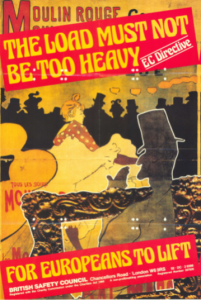The LAW, JUSTICE & SOCIETY (LJS) research grouping showcases and supports the full breadth of legal research found at the University of Reading. United by a determination to interrogate and reflect upon the multitudinous interactions between law, justice and society, scholars in this research grouping approach their chosen subjects through the lens of various methodological and conceptual approaches, including doctrinal, socio-legal, empirical, historical, literary and theoretical approaches to the study of law.
 The Law, Justice and Society grouping, which includes a vibrant postgraduate research community, hosts a range of research activities each year. Its particular emphasis is upon activities which help and support its members to grow and flourish as researchers, to develop new research ideas and methodologies, to evolve and expand existing areas of work and expertise, and to make a strong contribution to shaping the School of Law’s research capacity and culture.
The Law, Justice and Society grouping, which includes a vibrant postgraduate research community, hosts a range of research activities each year. Its particular emphasis is upon activities which help and support its members to grow and flourish as researchers, to develop new research ideas and methodologies, to evolve and expand existing areas of work and expertise, and to make a strong contribution to shaping the School of Law’s research capacity and culture.
 This research grouping comprehends a broad range of substantive expertise and methodological approaches, and its members are able to draw upon diverse and shifting synergies – both in the genesis and execution of research projects and the creation of high calibre traditional research publications, and in the delivery of work which has significant impact in the realms of policy formation, law reform, and public engagement.
This research grouping comprehends a broad range of substantive expertise and methodological approaches, and its members are able to draw upon diverse and shifting synergies – both in the genesis and execution of research projects and the creation of high calibre traditional research publications, and in the delivery of work which has significant impact in the realms of policy formation, law reform, and public engagement.
 Such is the breadth of the research encompassed within this research community, that any attempt comprehensively to describe it would inevitably fail to do justice to the rich diversity of its research community. Only a flavour of the sorts of work which its members engage in can be given here. It includes scholars who adopt theoretical (including critical legal, queer theory, feminist, and critical race theory) approaches to topics such as constitutional theory and reform, human rights, and citizenship and electoral rights. It also provides a home for the many researchers in the School of Law whose work is concerned primarily with the role that law plays in the establishment, delivery, management, and critical analysis of public policy goals in diverse areas, including the Criminal Justice System, environmental and financial regulation, food security, and health and social care. At the same time, those scholars work alongside, and often with, those in the grouping whose work focuses on the complex theoretical and practical issues affecting personal status, relationships, and rights in areas such as family life and employment.
Such is the breadth of the research encompassed within this research community, that any attempt comprehensively to describe it would inevitably fail to do justice to the rich diversity of its research community. Only a flavour of the sorts of work which its members engage in can be given here. It includes scholars who adopt theoretical (including critical legal, queer theory, feminist, and critical race theory) approaches to topics such as constitutional theory and reform, human rights, and citizenship and electoral rights. It also provides a home for the many researchers in the School of Law whose work is concerned primarily with the role that law plays in the establishment, delivery, management, and critical analysis of public policy goals in diverse areas, including the Criminal Justice System, environmental and financial regulation, food security, and health and social care. At the same time, those scholars work alongside, and often with, those in the grouping whose work focuses on the complex theoretical and practical issues affecting personal status, relationships, and rights in areas such as family life and employment.
